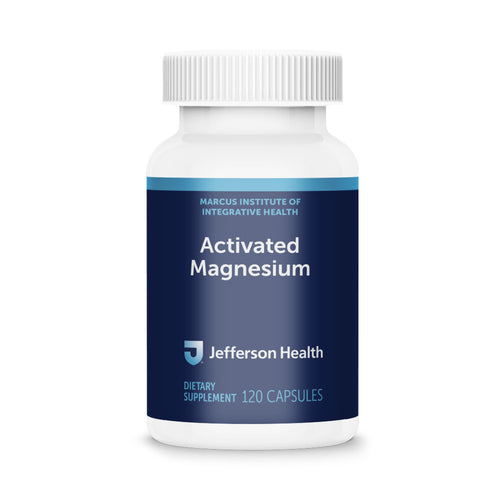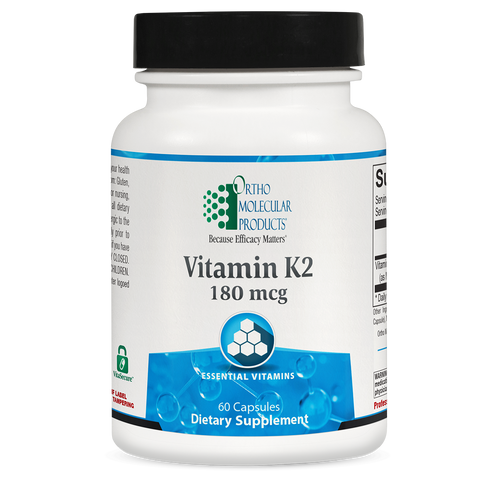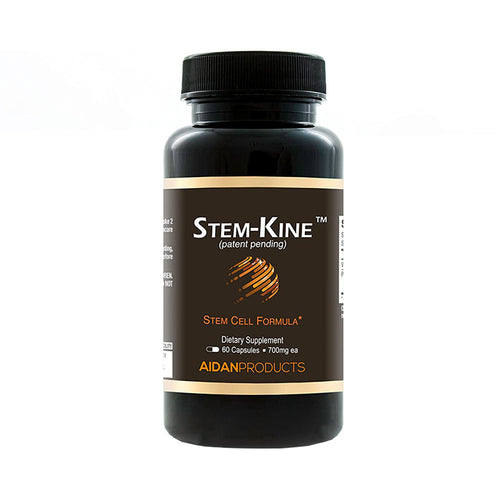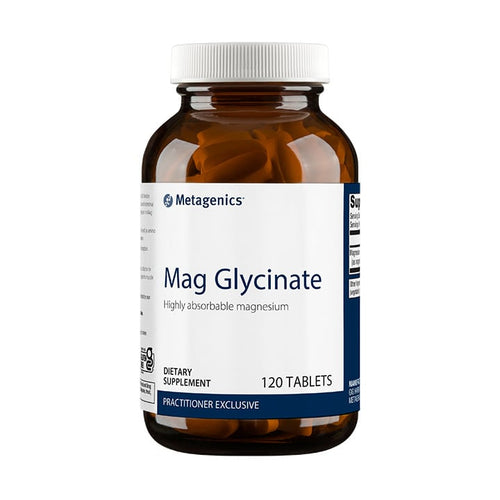cardiovascular
-
D3/K Vitals (previously K-Vitals)
60 Capsules
Categories:While vitamin D has long been known to assist calcium absorption, it is vitamin K, through its carboxylation of osteocalcin, which guides this calcium to bones and prevents their absorption into organs, joint spaces and arteries. Vitamin K occurs in 3 main forms: K1 (phylloquinone), derived from foods such as green leafy vegetables, K2 (menaquinone) which originates from bacteria; a third form, K3 (menadione), is a synthetic analogue. Numerous studies have shown that vitamin K2 is the more bioavailable form of the nutrient, and more powerfully influences bone building than K1. There are two forms of vitamin K2 commonly used in supplements: MK-4 and MK-7. The MK-7 form has been shown to have six times the activity of MK-4 in the blood. MK-7 has also been found to remain in the blood approximately nine times as long as the MK-4 (8 hours versus 72 hours), making it the optimal form of K2 for health. A growing body of research shows that when it comes to bone health, ensuring optimal intake of vitamin K is a critical piece of the puzzle. New research is focusing on the synergistic relationship between vitamin K (specifically, vitamin K2) and vitamin D3, especially in terms of bone strength and cardiovascular health. Through its activation of the protein osteocalcin, vitamin K helps to bind newly absorbed calcium to the mineral matrix in bone. In addition, vitamin K has been found to help maintain bone mineral density by decreasing the activity of osteoclasts, a cell that breaks down the bone matrix. Thus, vitamin K and vitamin D not only share similar qualities, but also act synergistically with one another within the body. The Vitamin K2 with D3 formula includes 45 mcg of vitamin K2 delivered as MK-7 and 5,000 IU of vitamin D3 per capsule, for optimal absorption by the body.
$30.00 -
Activated Magnesium
120 Capsules
Categories:Magnesium is an abundant mineral in the body and is found naturally in many foods, like green leafy vegetables. It is also found in over-the-counter medications, such as laxatives. The average American intake of magnesium, according to the National Health and Nutrition Examination Survey (NHANES Study) is critically low: Many Americans fail to consume the estimated average requirement (EAR) established by the Institute of Medicine. In addition, more than 57% of the population does not meet the United States Department of Agriculture requirements for magnesium in the diet. Intracellular magnesium levels are decreased by excessive intake of alcohol, salt, coffee, phosphoric acid found in sodas, diets high in calcium and high stress levels. Because of widespread nature of magnesium deficiencies, adequate daily intake of magnesium is critical for proper hydration, stress response, muscle relaxation, promoting healthy blood pressure levels, optimal bone mineral density, and blood sugar regulation. Reacted Magnesium provides three unique forms of highly-absorbed magnesium to ensure maximum absorption of this important macromineral. Most magnesium supplements use only a single source of magnesium, which can easily overwhelm a single pathway of absorption and limit uptake. Reacted Magnesium takes advantage of three unique pathways of absorption by providing magnesium as di-magnesium malate, magnesium citrate and magnesium glycinate for enhanced absorption, improved utilization and gastrointestinal (GI) comfort. Some individuals, who take other forms of magnesium supplements, often experience GI side effects, including gas, bloating, diarrhea, constipation or a combination of these symptoms. The forms of magnesium used in Reacted Magnesium preserve GI comfort while maximizing absorption and restoring magnesium levels in the body.
$36.00 -
Vitamin K2 180 mcg
60 Capsules
Categories:Supports Healthy Blood Circulation Supports Cardiovascular Health and Arterial Elasticity Promotes Optimal Bone Health and Proper Calcium Storage Boosts Immune Function
$38.60 -
Stem-Kine
60 Capsules
Categories:Stem-Kine capsules are a patent-pending, proprietary blend of natural substances that stimulate your body’s ability to mobilize your own stem cells. Through clinical trials and research with leading universities, Stem-Kine™ has been proven to double the number of circulating stem cells for an extended period of time. A direct correlation exists between circulating stem cells and health and regenerative capabilities.
$70.00 -
Mag Glycinate (DROP SHIP ONLY)
120 Tablets
Categories:Mag Glycinate features a magnesium amino acid chelate (bis-glycinate) designed to enhance absorption and intestinal tolerance. Unlike other formulations, the magnesium in Mag Glycinate is designed to*: Be absorbed via a mechanism similar to that used by amino acids and unlike typical mineral ion absorption. Not be dependent on stomach acidity for absorption. Improve bowel tolerance to magnesium. Magnesium is an essential mineral that acts as a cofactor in many metabolic processes. Magnesium supports muscle relaxation and nervous system health.*
$31.00





